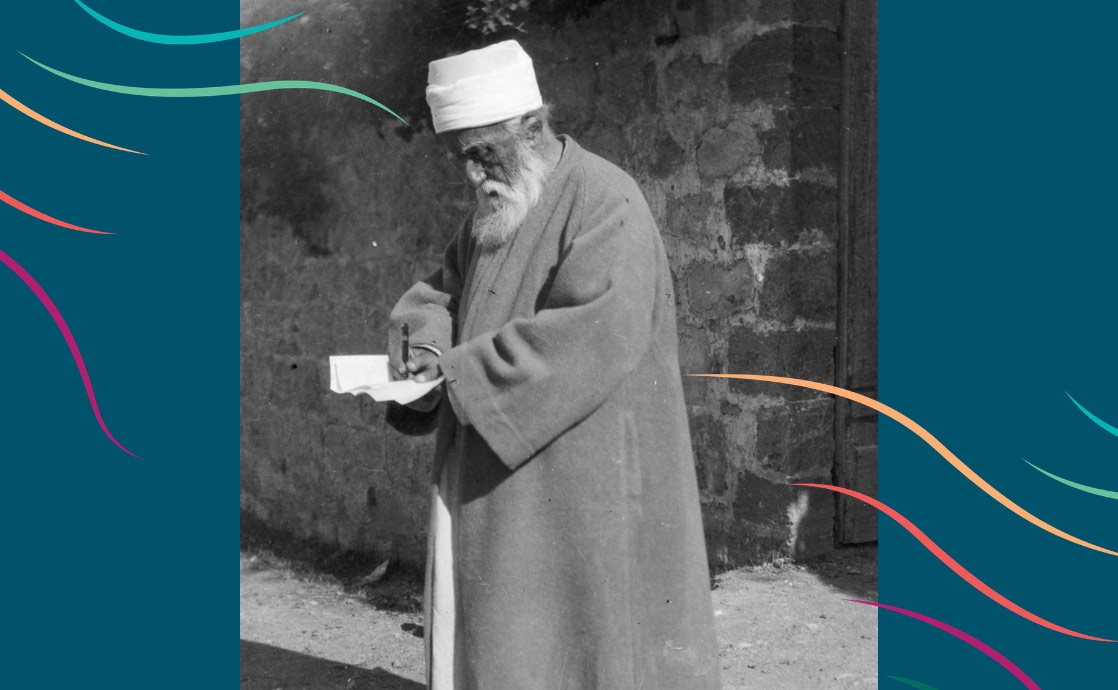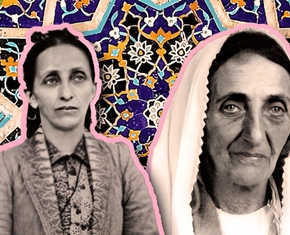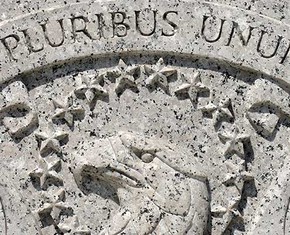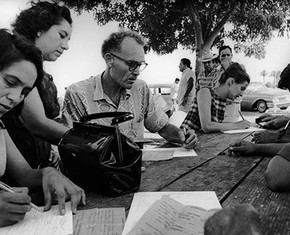The views expressed in our content reflect individual perspectives and do not represent the authoritative views of the Baha'i Faith.
The histories of the Baha’i Faith indicate that skeptics put Abdu’l-Baha to their tests not once, but at least twice.
According to the Baha’i martyr and author Hushang Mahmudi in his book Yad-dasht-ha’i dar bariy-i-Hadrat-i-Abdu’l-Baha, another person, this one a Baha’i, also decided to send Abdu’l-Baha a blank letter while keeping his questions to himself, apparently with the intent of testing Abdu’l-Baha’s ability to divine and then answer those questions.
Baha’i sources differ on the question of the identity of this inquirer. Mahmudi identified him as a certain Haji Muhammad Ismaʻil Gulpaygani, citing Makatib-i-Hadrat-i-Abdu’l-Baha, Volume 2, page 192, where there is a handwritten footnote (probably from the publisher) that names Gulpaygani as the recipient of Abdu’l-Baha’s response.
This, however, is contradicted by the heading which Abdu’l-Baha himself originally prefixed to the tablet he wrote in response, in which the recipient is identified as someone by the name of Karbala’i Mirza Nasru’llah Khan. (This heading seems not to have been retained in Makatib 2:192, but it does appear in two other collections of Abdu’l-Baha’s tablets: Majmuʻiy-i-Mubarakih, Ali-Akbar Milani, 1908, p. 193; and INBA 59:212.)
Very little seems to be known about either Gulpaygani or Nasru’llah Khan—but regardless of which one of them was the recipient of this tablet, we know that it came after Abdu’l-Baha’s response to Mirza Sadiq Naqqash, since Abdu’l-Baha referred to that episode as the first of its kind. Also, we know that Abdu’l-Baha wrote it no later than 1908, since it is printed in a collection of his tablets published that year. Here’s a provisional translation of his tablet to the second blank letter he received:
He is God
O thou who hast put Abdu’l-Baha to the test! Is it seemly for one like thyself to test a lowly and submissive servant of the Lord? No, by God! To test the people of the world is the prerogative of the Center of the Covenant; it is not for men to make their minds standards by which to appraise the truth and then weigh the radiant light therewith.
Hast thou not heard that when Ali, peace be upon Him, was once standing on the edge of a dangerous cliff, a fanciful man said to him, “O father of Hasan! Dost thou believe in the protection of God, and also in His aid and safekeeping?” Ali replied, “Yea, the truth is even as thou sayest,” whereupon that man, heedless of the remembrance of God, said, “Then fling thyself, O Ali, from this elevated spot into the deepest abyss, that I might believe thou art truly assured in thyself of the protection of God!” Then Alí, peace be upon Him, said in response, “It is not for me to test God; rather, it is for God to test me. To do this would be to commit a sin He shall never forgive me.”
Heed well, therefore, O thou who art immersed in a sea of trials, the words of Ali, whilst thou seekest to test one other than thyself whom thou canst never encompass in knowledge. Know, then, that the One Whose name consisteth of three letters [‘Alí, i.e. the Báb] is the same as the One Whose name consisteth of four letters [Husayn, i.e. Bahá’u’lláh], and that the reverse is equally true. He who graspeth the intent of these words knoweth this to be true; such a one is privy to the mysterious secrets that lie hid in the verses of creation and the Writings revealed by the Supreme Pen. Soon will the subject of thine inquiry be unveiled to thee, resplendently as the sun in the center of the sky, and erelong will the present state of affairs be altered. Then wilt thou say: “Exalted is He Who maketh men to laugh after they have cried and quickeneth the moldering bone when it hath already decayed! Glorified is He Who easeth the straitened circumstance and cleareth the breasts of those in the midst of throats that gurgle and rattle! Magnified is He Who hath illumined the gloomy darkness with the brilliant light emanating from the horizon of the mercy of the stern Lord! Lauded is He Who hath exalted the abased and abased the exalted, obliterating the stars and turning them into stones that put the people of iniquity to flight!”
Comprehend, then, the explicit references to these terms, and seek assurance at all times through the mention of Thy Lord. Test not any soul henceforward, for the practice of testing befitteth God alone, and man hath no right thereto; it is for him only to acknowledge what hath been revealed in the Qurʼan: “Surely We will test you with something of fear and hunger, and diminution of goods and lives and fruits.”
The glory of God be upon thee. – Majmuʻiy-i-Mubarakih, pp. 193–194, provisional translation by the author. (Thanks to Taleen Jameel and Runa Ali for their helpful comments on this translation)
Here we have yet another passage from Abdu’l-Baha that should not go unnoticed, in which he addressed his inquirer as one attempting to test someone other than himself—not just anyone, but one whom he can “never encompass in knowledge.” Again we see Abdu’l-Baha hinting at his “superhuman knowledge”—a knowledge born of his unique station in the history of religion.
Once again, Abdu’l-Baha has taken an ill-conceived attempt at testing his abilities and turned it into a valuable spiritual lesson for the one who inquired: that God tests His servants, not the other way around.
You May Also Like
Comments

















Qur'an 2:155 "We will surely prove you by afflicting you in some measure with fear, and hunger, and decrease of wealth, and loss of lives and descendants [children]"